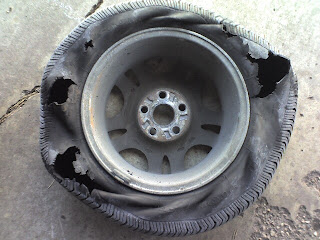NAFTA Conspiracies: All Smoke No Fire
Sorry, I have to do this. I use Google Alerts to keep up on NAFTA related news. A large portion of what I get relates to the impending merger of the U.S., Canada, and Mexico into a North American Union and the resultant loss of the American way of life. Go to YouTube and search for video relating to the Security and Prosperity Partnership of North America. Watch videos relating to the North American Union. You will find the shameful and shameless Lou Dobbs fomenting fear and resentment with a non-story relating to the loss of America to a European Union-style North American meta-nation. This is all supposed to happen before 2010. If you watch these videos and read the equally uninformed web sites and blogs decrying the NAU, one thing quickly becomes clear: although it seems very important to them, these people do not have the faintest idea what sovereignty means. That includes Lou Dobbs who uses a position of media power to whip up strong emotions in well meaning patriotic American

